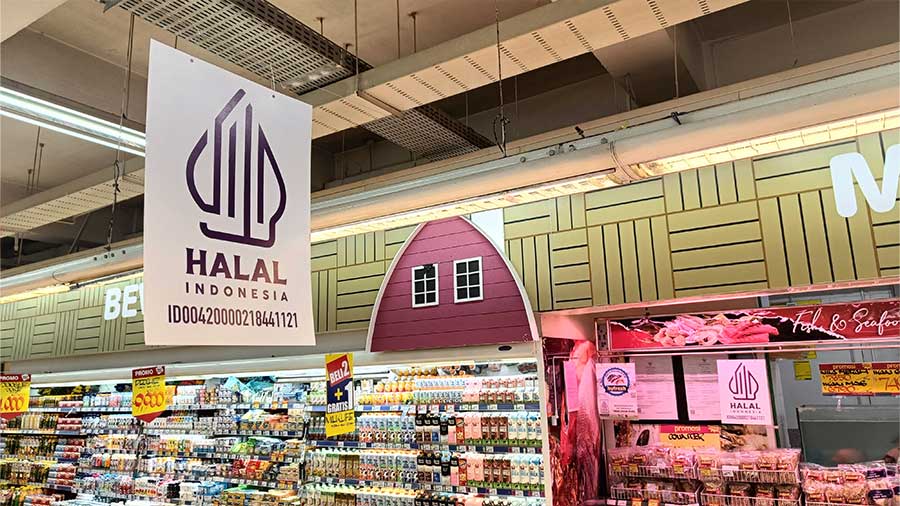How Indonesia Is Becoming a Global Halal Trade Hub
Indonesia, the world’s most populous Muslim-majority country, is rapidly transforming into a global halal trade hub. With a domestic market of over 230 million Muslims, supportive government policies, and international halal certifications gaining global recognition, the country is strategically positioning itself at the heart of the global halal economy — which is expected to surpass $3 trillion USD by 2028.
In this article, we explore the factors driving Indonesia’s halal trade ambitions, the infrastructure and institutions supporting it, and what businesses—both local and foreign—need to know to tap into this high-growth sector.
🕌 The Size and Potential of the Halal Economy
The global halal economy spans more than just food. It includes cosmetics, pharmaceuticals, modest fashion, travel, financial services, and logistics. In 2023 alone, halal food exports were valued at over $1.3 trillion globally. With its strategic geography, abundant natural resources, and a large domestic market, Indonesia is now leveraging its strengths to take a leadership role.
Key Sectors in Halal Trade:
-
Halal Food & Beverages
-
Modest Fashion
-
Halal Pharmaceuticals and Cosmetics
-
Islamic Finance
-
Halal Travel (Muslim-friendly tourism)
📌 Related blog: Sharia Economy Trends in Indonesia for 2025
📊 Why Indonesia?
1. Massive Domestic Market
With the world’s largest Muslim population, Indonesia naturally represents a strong internal demand for halal-certified goods. This makes it attractive for manufacturers and exporters looking to scale up from local to global markets.
2. Strategic Government Policies
The government launched the Indonesia Halal Industry Masterplan 2019–2024, aiming to make the country the largest halal producer globally by focusing on halal industrial zones, certification services, and export incentives.
3. BPJPH and Halal Certification
The Halal Product Assurance Agency (BPJPH) under the Ministry of Religious Affairs now regulates halal certification in collaboration with international bodies. Indonesia’s certifications are increasingly recognized across GCC and Southeast Asian countries.
📖 Learn more: Indonesia’s BPJPH Official Website
🏭 Halal Industrial Zones (KIH): The Backbone of Growth
Indonesia has designated Halal Industrial Zones (Kawasan Industri Halal/KIH) to streamline halal production. These zones offer businesses tax incentives, streamlined certification, and integrated halal supply chain services.
Key Halal Zones:
-
Modern Cikande Industrial Estate (Banten)
-
Batamindo Industrial Park (Batam)
-
Sidoarjo Industrial Zone (East Java)
These zones are designed to attract foreign investors in food processing, pharmaceuticals, and cosmetics by ensuring compliance with halal standards from raw material sourcing to packaging.
🔗 Source:Indonesia Investment Coordinating Board – Halal Zones
🌍 Export Potential and Global Partnerships
Indonesia is boosting its halal exports to OIC countries, especially Malaysia, Saudi Arabia, UAE, Egypt, and Turkey. Recent bilateral agreements and trade pacts have opened up halal trade corridors, supported by agencies such as:
-
Indonesia Halal Lifestyle Center
-
LPPOM MUI (Majelis Ulama Indonesia)
-
Sharia Economic Community (MES)
In 2024, Indonesia signed a Halal Mutual Recognition Agreement with the UAE and is in discussions with the EU for halal-compliant agricultural exports.
📦 Related: Top Export Products from Indonesia in 2025
🚚 Halal Logistics: Ensuring Compliance Across the Supply Chain
Halal trade isn’t just about product certification; it also involves halal logistics. This includes temperature control, segregation of halal and non-halal items, and hygiene standards in transportation and warehousing.
Several Indonesian logistics agents now specialize in halal supply chain management, offering:
-
Certified cold chain warehousing
-
Halal logistics audits
-
Export documentation aligned with OIC and GCC standards
🔗 Read: The Rise of Smart Warehousing in Indonesia’s Key Ports
💡 Business Opportunities for Global Brands
For companies seeking to enter Indonesia or use it as a regional halal export base, the opportunities include:
-
Contract manufacturing via Indonesian halal-certified partners
-
Brand localization using halal labeling and Indonesian ingredients
-
Digital platforms like Halal Marketplace and Tokopedia Halal
-
Retail partnerships in growing sectors like halal cosmetics and modest fashion
🛠️ Need help? How Indonesia-Agent.com Helps Global Businesses Navigate Indonesia’s Sourcing Landscape
📈 Halal Financing and Fintech Growth
Islamic finance is another critical component. Indonesia’s Sharia banking assets are expected to cross IDR 2,000 trillion by 2025, with growing adoption of Sharia-compliant fintech apps like LinkAja Syariah and Hijra Bank.
For businesses operating in the halal sector, this opens up:
-
Ethical investment options
-
Access to Sharia-compliant funding
-
Trust-based financial models preferred by Muslim consumers
🇮🇩 Final Thoughts: Indonesia’s Halal Future Is Global
Indonesia is no longer just a halal-consuming nation; it’s becoming a halal-exporting powerhouse. With infrastructure, certification systems, and government backing in place, businesses that align with Indonesia’s halal trade ecosystem stand to gain from access to domestic growth and global reach.
Whether you’re an exporter of halal goods, a logistics firm seeking compliance solutions, or a brand looking to enter the Muslim market, Indonesia is the launchpad to Southeast Asia, the Middle East, and beyond.
👉 Ready to Explore Opportunities in Indonesia’s Halal Trade?
Get local insight, connect with certified agents, and receive export support through
Indonesia-Agent.com — your partner in halal trade and sourcing.

